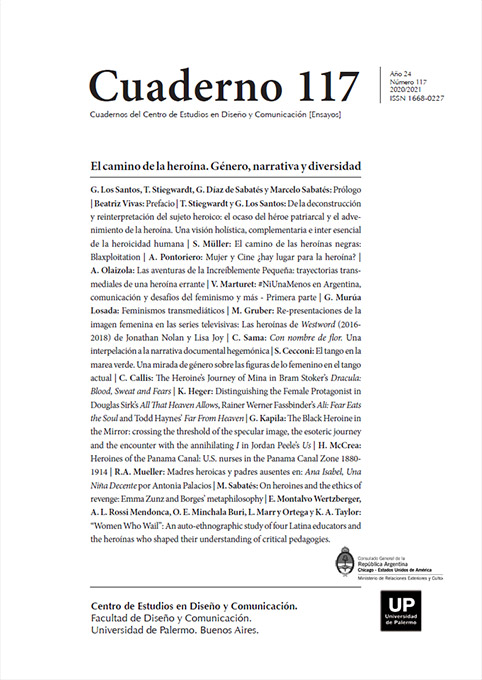Re-presentaciones de la imagen femenina en las series televisivas Las heroínas de Westword (2016-2018) de Jonathan Nolan y Lisa Joy
Abstract
In 2016, the HBO networks produced a TV series for its Premium channels, called Westeworld, created by Jonathan Nolan and Lisa Joy. This science fiction/suspense series transports us to a near future in which one of the Delos Inc. theme parks gives the possibility of living and experiencing the Old American West or, during its second season, two new alternative attractions: Taj World and Shogun World. Visitors (“newcomers” or “guests”) live with hosts (androids) created to make this adventure possible. To do so, a series of intertwined narratives have been devised in order to satisfy the guests' full wishes while preserving their physical integrity. It is in this context that two of the hosts kept fragments of their "erased memories" that make them question the veracity of their world. We are talking about Dolores Abernathy, a ranchers' daughter and Maeve Millay, the Sweetwater saloon's madame. Throughout the two seasons, they will become the true heroines of this series narrative. In this work, we are trying to analyze the hermeneutical lines that gave life to these female characters and how they have been portrayed from the audiovisual language point of view. We believe that it is not by chance that this kind of narrative surfaces at a time when the role of women in society is the subject of deep political, ethical and aesthetic reflection.
References
Ball, P. (2012). Contra natura. Sobre la idea de crear seres humanos. Madrid: Turner.
Hoberman, J. (2016). Escritos sobre cine americano. Buenos Aires: Cuenco de Plata.
Los Santos G., Stiegwardt (2019). El camino de la heroína, el arquetipo femenino universal para un nuevo paradigma. En Proyecto narrativa y género: El camino de la heroína – El arquetipo femenino universal para un nuevo paradigma. Cuadernos del Centro de Estudios en Diseño y Comunicación [Ensayos]. 22 (91). Buenos Aires: Universidad de Palermo.
Santos, A. (2017). Tierras de ningún lugar. Utopía y Cine. Madrid: Cátedra.
Sarti, G. (2012). Autómata. El mito de la vida artificial en la literatura y el cine. Buenos Aires: Facultad de Filosofía y Letras – UBA.
Sarti, G. (2013). Carne y metal. La representación de lo monstruoso maquínico. Oliveras, E. (Ed.). Estéticas de lo extremo. Nuevos paradigmas en el arte contemporáneo y sus manifestaciones latinoamericanas. Bunos Aires: Emecé.
Los autores/as que publiquen en esta revista ceden los derechos de autor y de publicación a "Cuadernos del Centro de Estudios de Diseño y Comunicación", Aceptando el registro de su trabajo bajo una licencia de atribución de Creative Commons, que permite a terceros utilizar lo publicado siempre que de el crédito pertinente a los autores y a esta revista.


